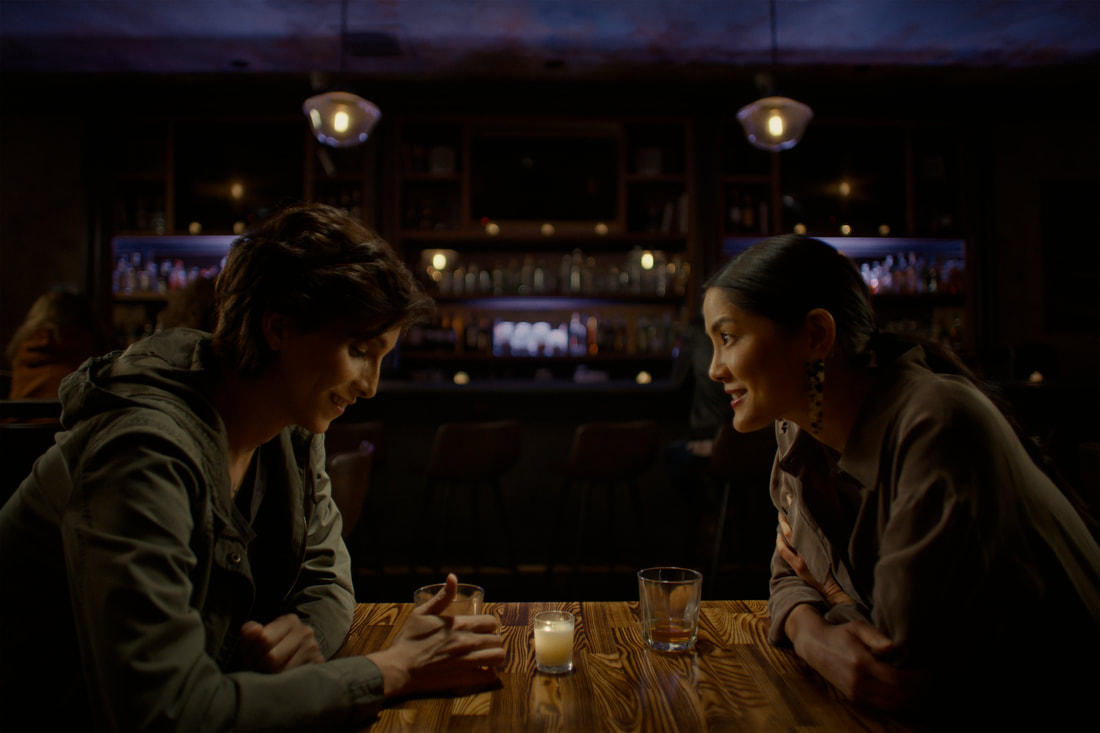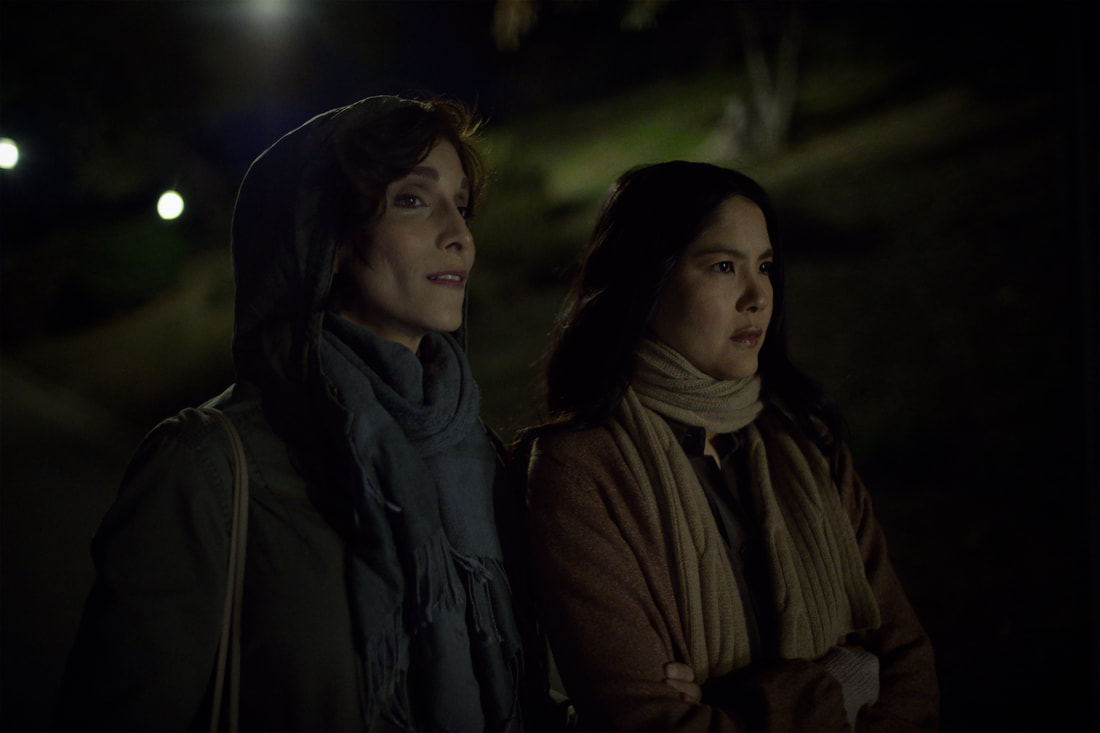|
Review by Sean Boelman
Film festivals are great for discovering movies that handle topics and themes that are on the consciousness of the masses but haven’t yet made their way into mainstream filmmaking. And while it does feel a bit sanitized, Mari Walker’s See You Then still serves as a big step towards better representation of LGBTQ issues in cinema.
The film follows a former couple who reunite after ten years, one having started a family of her own and the other having transitioned. It’s a very cathartic movie, featuring the two characters as they discuss and explore their respective lives, but the script by Walker and Kristen Uno could have spared to go a bit deeper into the introspective elements. What is likely to make this film stand out is its representation of transgender issues, but the movie feels as if it was made to explain these ideas to a cis straight audience. Granted, this does make sense, as it is literally a trans character explaining her identity to a cis straight character. However, this doesn’t change the fact that this is a very rudimentary depiction of transness. That said, the film’s exploration of womanhood is a lot more nuanced. The best part of the script is getting to see these two women discuss their experiences and how society has broken them with its misogyny. The dialogue scenes tend to be a lot better than those which are driven by monologues, as it is the back-and-forth between the two that will really invest viewers.
The character development in the movie is somewhat frustrating in that this is largely presented from the perspective of the cis character. Although it is great to see an empathetic depiction of a trans character on screen, the fact is that she exists more in service of the cis character’s arc than her own.
Pooya Mohseni’s performance is absolutely exceptional. She gives a phenomenal turn that is packed with emotion, really selling exactly how hard-hitting this film is to be. Lynn Chen is great as her scene partner too, understanding that she is not the most important factor here and frequently taking a step back to allow Mohseni to shine. On a technical level, the movie is mostly very simple and straightforward, as it is predominantly a dialogue piece, but Walker does a good job of creating the feeling of intimacy that is so necessary for this film’s success. It’s a quiet and meditative movie, and Walker’s subtle hand is able to create that mood. See You Then may not quite be a leap forward, but it is a good step, even if it is likely to be more effective for those who aren’t LGBTQ. Regardless, the great performances and strong dialogue make this an essential watch. See You Then is screening as a part of the online edition of the 2021 SXSW Film Festival, which runs March 16-20. Rating: 3.5/5
0 Comments
Leave a Reply. |
Archives
July 2024
Authors
All
|
|
|
disappointment media
Dedicated to unique and diverse perspectives on cinema! |


